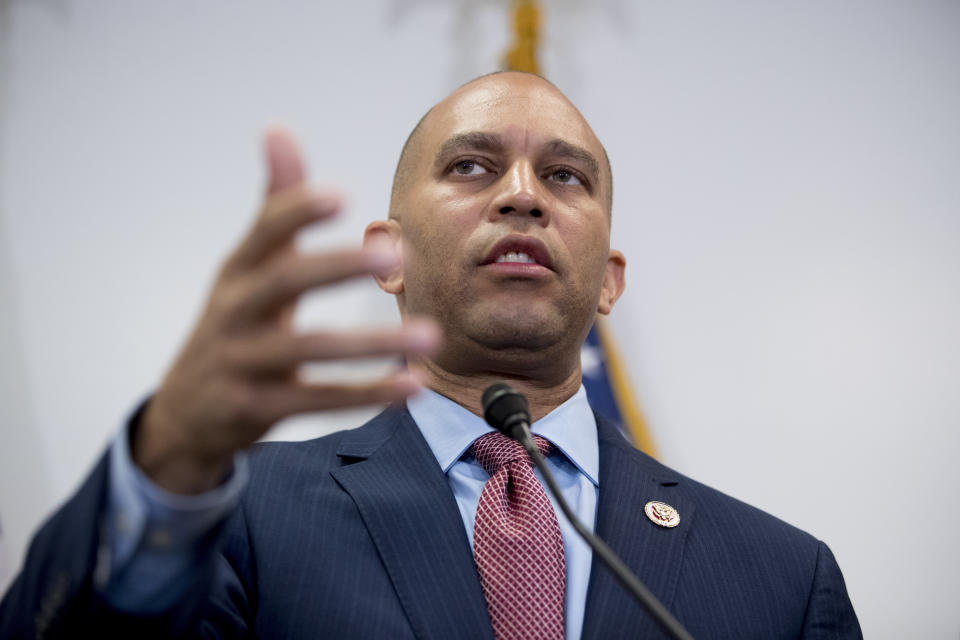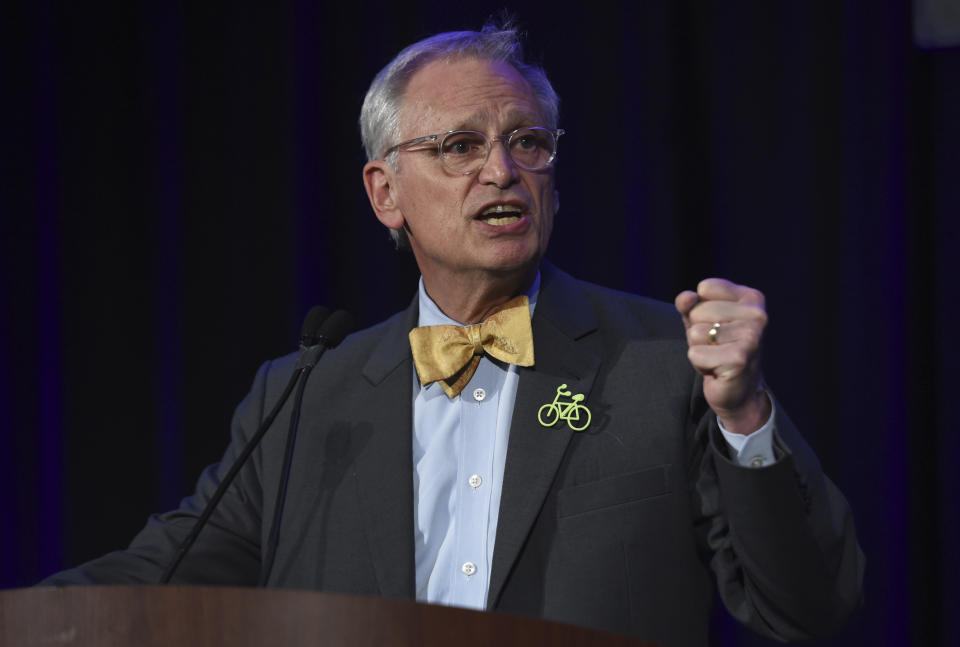Legalize it, marijuana advocates tell Congress
WASHINGTON — “This marijuana causes white women to seek sexual relations with Negroes, entertainers and any others,” said Rep. Hakeem Jeffries, D-N.Y., at a Wednesday hearing of the House Judiciary Committee on marijuana policy. The words were not his, of course, belonging rather to 1930s federal narcotics chief Harry J. Anslinger, who formulated antidrug measures that, in many ways, remain in place today.
The point of quoting Anslinger was not lost on anyone in the packed Capitol Hill hearing room. “The foundations of marijuana policy are inherently racist,” said a witness, G. Malik Burnett, MD, one of the few men of color to run a major cannabis dispensary.
Burnett was one of several witnesses — including Baltimore’s chief prosecutor, Marilyn Mosby, who recently said she would not prosecute marijuana possession — to tell Congress that it was time to decriminalize marijuana use and possession. They also pushed to give people of color opportunities in the rapidly growing legal cannabis industry.

In her opening statement, Mosby called for removal of marijuana from classifications under the Controlled Substances Act, where it is listed as a Schedule I drug, along with heroin and the hallucinogen LSD. That means federal penalties for marijuana sale, possession and use can still be quite severe, even as 40 states and the District of Columbia have legalized the drug in some form, several of them completely.
The hearing came less than a month after the same committee held hearings on reparations for descendants of slaves. But while that remains one of the more contentious social and political topics on the American scene, marijuana has become increasingly uncontroversial, with even a majority of Republicans surveyed in a 2018 poll saying they wanted the drug made legal. At one point during the hearing, Rep. Matt Gaetz, R-Fla., a frequent pro-Trump voice on the Hill, referred to the marijuana legalization push as “our movement,” encapsulating left and right alike. Indeed, it is an issue that in recent years has brought together criminal justice reformers, libertarians and entrepreneurs.
And it is a remarkable, remarkably quick turnaround, given the debate during the 1992 presidential campaign over whether Bill Clinton had once inhaled marijuana. In his remarks, Rep. Ted Lieu, D-Calif., compared that shift to the speed with which same-sex marriage became legal, first in states like New York, then across the nation. “My view is that everything in politics seems impossible until it happens,” said Lieu, who had advocated for legalization of marijuana as a state legislator in California. “So 15 years ago, if I were to tell you, ‘Hey, in 15 years we would have gay marriage in 50 states, and in some of those states we’d be smoking weed,’ you’d think I was crazy. But that is, in fact, what is happening now, so I appreciate the fight, keep on fighting, and I believe we can get this done.”

In fact, Rep. Earl Blumenauer, D-Ore., has published a comprehensive, ambitious plan to make marijuana fully legal within the current congressional session, which ends next year. “This movement is cresting,” his memorandum on marijuana legalization says. Blumenauer has also introduced the Regulate Marijuana Like Alcohol Act, which, if passed, would lead to marijuana being regulated like “intoxicating liquors or liquids.” (Wednesday’s hearing was not related to Blumenauer’s bill.)
“Today’s hearing is monumental in our fight to end cannabis prohibition,” Blumenauer said in a statement to Yahoo News. “As outlined in our blueprint, every major committee has a role to play in this effort in Congress. We have outlined a pathway forward, and with a Democratic majority, we are making the progress needed.”
But even if some Republicans in the House, like Gaetz, support legalization efforts, the growing consensus will face a formidable foe in Senate Majority Leader Mitch McConnell, who controls the agenda in his chamber.
“I do not have any plans to endorse the legalization of marijuana,” McConnell said last year.
_____
Read more from Yahoo News:



